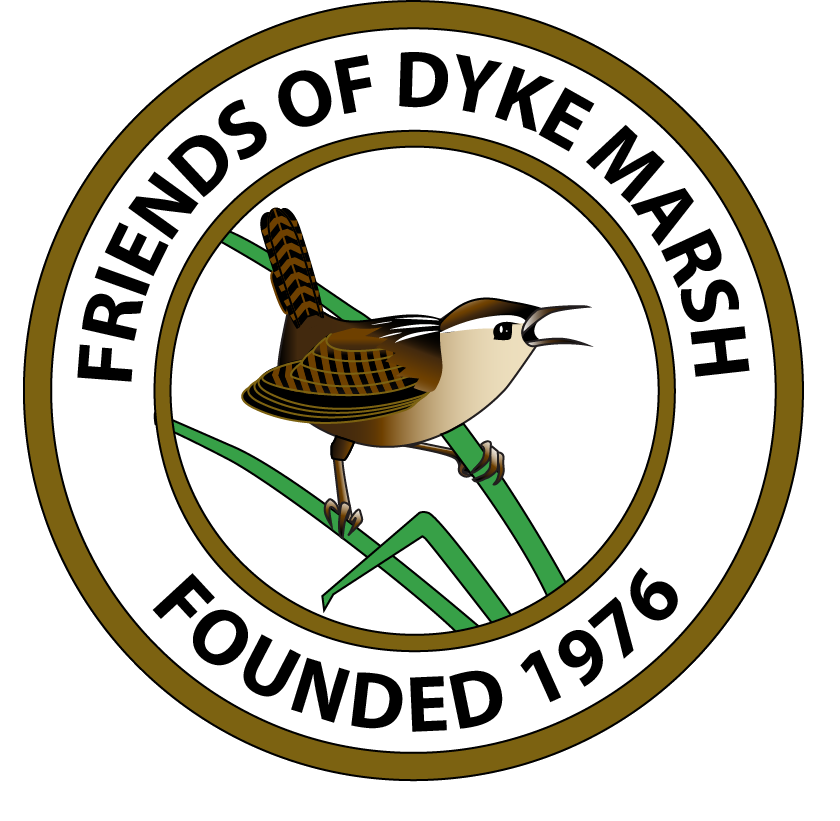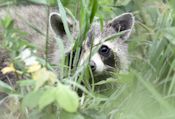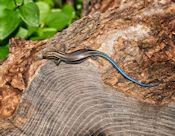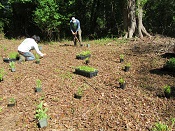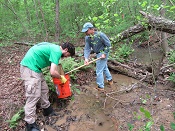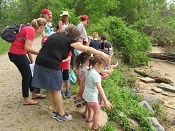In the spring of 2018, the combination of heavy rains, easterly winds and normal tidal fluctuations due to the moon’s and sun’s gravitational effect created flooding tides in the wetlands of the Dyke Marsh Wildlife Preserve. Visitors saw mammals, birds, reptiles, insects and crustaceans foraging on or near the shores and tidal guts. Some altered some of their foraging patterns, moving to the trails or higher ground than they normally use. Observers saw abundant land snails climbing cattails and other marsh vegetation.
Dyke Marsh visitors have had some good skink sightings this spring 2018. A skink is a type of lizard, typically shiny and with short or no limbs. Most skinks have tapering tails that they can shed if predators grab them and they usually can regenerate the lost part of the tail. Skinks move quickly.
Virginia has nine native lizard species, according to Alonso Abugattas, Arlington County Natural Resources Manager. Six of these species are likely in the Washington, D.C., region. “All lizards native to Virginia in the genus Plestiodon have bright blue tails as juveniles/subadults,” according to the Virginia Herpetological Society’s website.
On May 9, 2018, 20 dedicated volunteers and National Park Service (NPS) staffers planted around 1,500 native trees and plants on .65 acres on the west side of the Haul Road trail in Dyke Marsh. Among others, the group planted spicebush and winterberry; trees included sycamore, tulip tree, cottonwood, maples and black gum; "phorbs" included wing stem, pyeweed, tick-trefoil and moonflower vine plus grasses such as deer-tongue, Virginia rye and riverside rye.
Determining the habitat quality of a stream flowing into Dyke Marsh from the west was the quest on May 5, 2018, when FODM volunteers conducted some biological testing of the stream flowing through Mount Vernon District Park. FODMers partnered with the Westgrove Dog Park PACK organization and led by Dan Schwartz, Northern Virginia Soil and Water Conservation District, took 20 samples from the stream within a 300-foot span, with the goal of identifying 100 living invertebrates. The group found 55 invertebrates, fewer than the desired 100. Forty of the 55 were scuds, considered to be impairment tolerant organisms.
On May 4, 2018, 30 very curious youngsters from St. Luke’s Episcopal Church Preschool visited the Dyke Marsh Wildlife Preserve. Their teacher, Jennifer Gough, prepared a scavenger hunt guide for them to use in spotting plants, animals, rocks and other “finds.”
